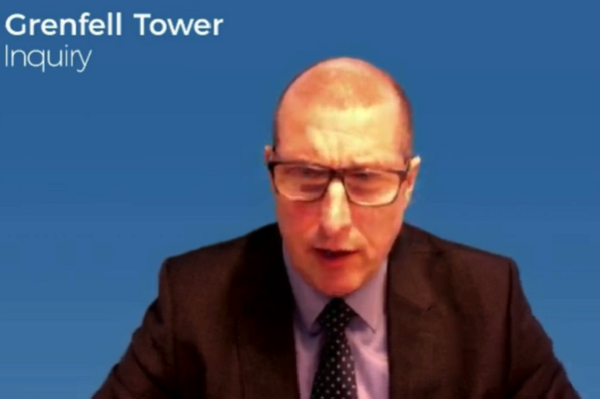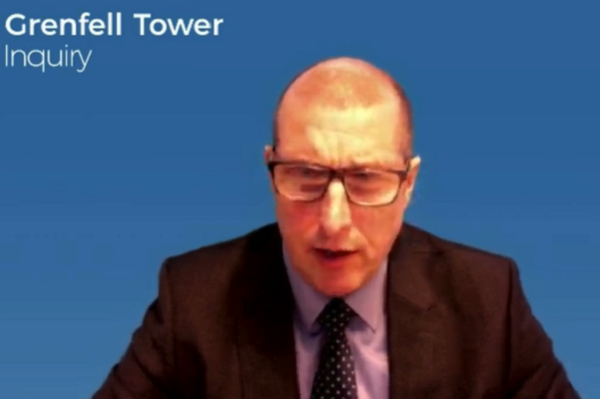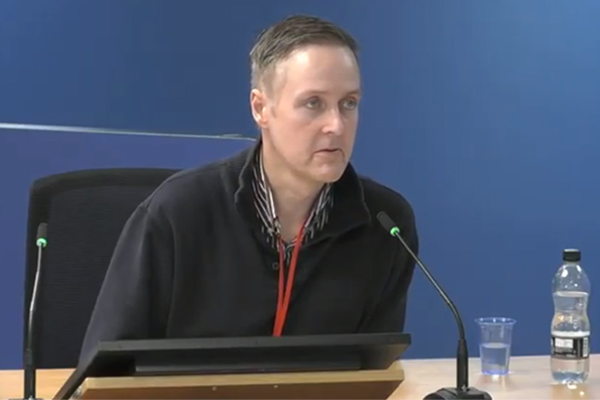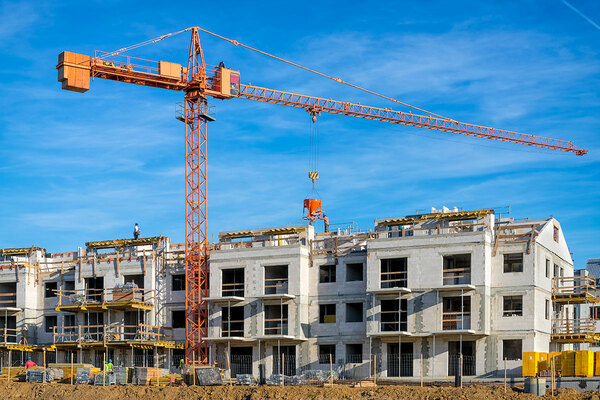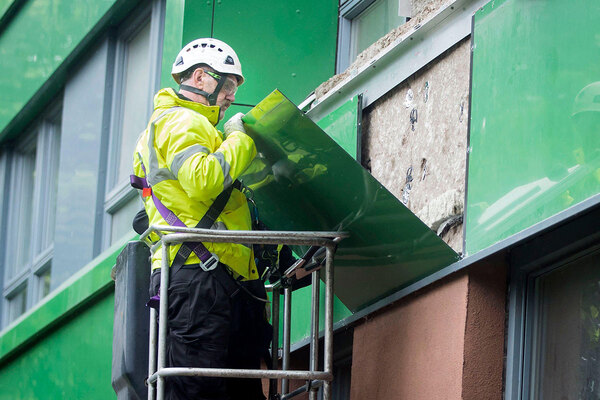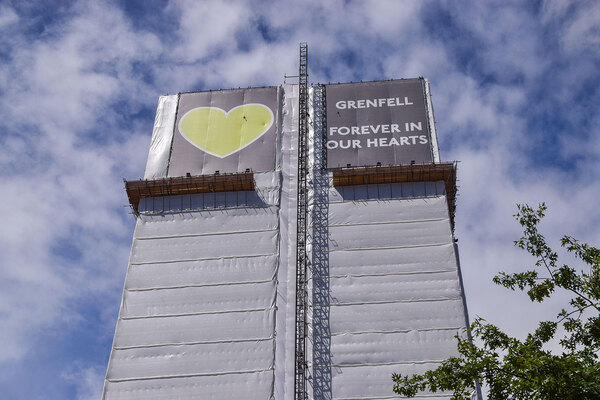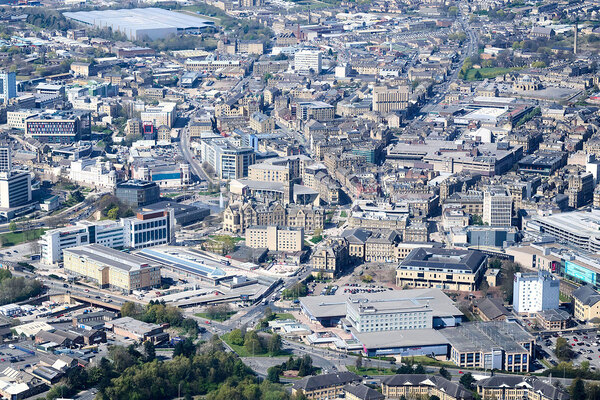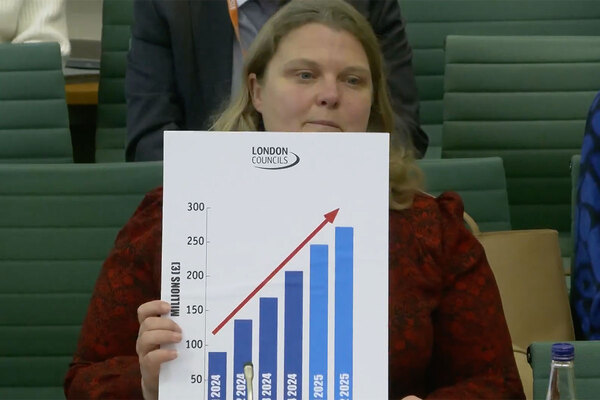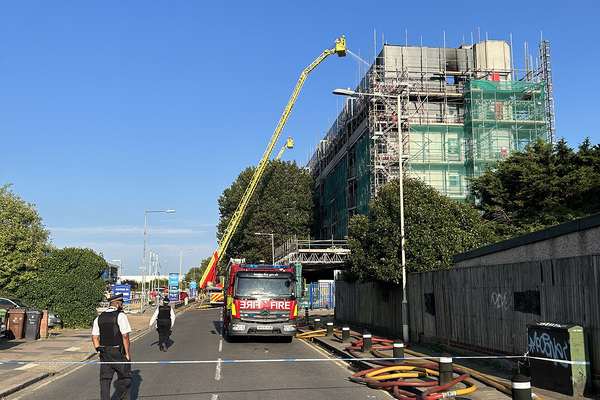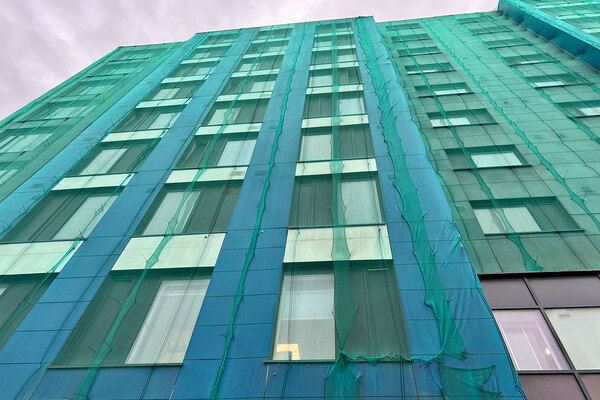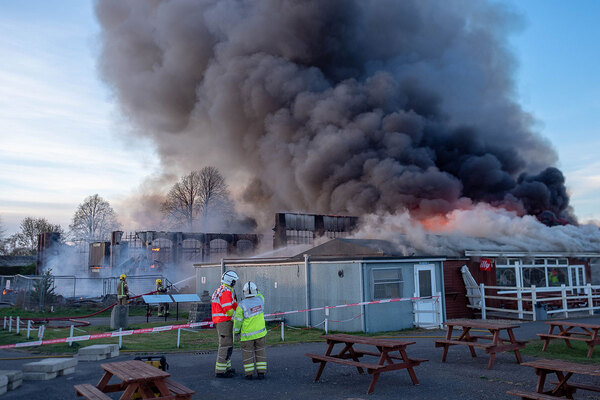NHBC accepted combustible insulation on high rises ‘as a direct result’ of Kingspan ‘campaigning’, inquiry hears
The UK’s largest building inspector published guidance saying it would accept the use of untested combustible cladding systems “as a direct result” of “campaigning” by insulation manufacturer Kingspan, the Grenfell Tower Inquiry heard today.
The National House Building Council (NHBC) had previously raised concerns about the use of Kingspan’s combustible K15 insulation on tall buildings and threatened to reject applications including it in January 2015.
But following the threat of legal action by Kingspan and several meetings with the firm, it published guidance in July 2016 which instead said that K15 and insulation products made by two rival firms would be approved without test evidence in combination with popular cladding types, including aluminium composite material (ACM).
It said it made this decision following a review of tests carried out by the various firms.
Commenting on this development in an internal email in July 2016, Adrian Pargeter, then head of technical and marketing for Great Britain, said that the NHBC had “effectively eased the passage of compliance for a selection of combustible insulation brands”.
“Overall I feel this is good news as it shows a shift in thinking and an acceptance of combustible insulation and I am sure is a direct result of our testing and campaigning on this issue,” he wrote.
However, he added that it would allow the other manufacturers listed by the NHBC – Celotex and Xtratherm – “to ride in on our shirt tales after relatively little effort”.
Giving evidence today, Richard Burnley, former managing director at the firm, said he assumed that the reference to campaigning meant “meetings we had with various people” at the NHBC.
“What had occurred, do you know, in the 12 months or so before July 2016 for the NHBC to suddenly start approving combustible insulation [on buildings] over 18m?” asked Richard Millett, lead counsel to the inquiry.
“It’s the first time I’ve seen this, I’m reading it with you,” he replied.
Other documents showed meetings between Kingspan and the NHBC following its threat of legal action, in which the NHBC agreed to “discuss widening/amending the scope of options for demonstrating compliance” in a guidance note published by the Building Control Alliance (BCA).
Guidance notes published by the BCA in June 2014 and 2015 laid the framework for the use of so-called ‘desktop studies’, which allowed systems containing combustible insulation to be approved without direct test data based on an assessment by a “suitably qualified expert”.
The NHBC had already signed off many systems using K15 that did not have direct test data covering the system used.
“Was there any sense in which you felt like you might be able to take advantage of the fact that things might get a bit difficult for the NHBC if it came out that they had approved or insured buildings with K15 on them that did not correspond to the 2005 build-up [Kingspan’s only successful test]?” Mr Millett asked.
“Absolutely not,” Mr Burnley replied.
Earlier, Mr Burnley had been shown documents which showed that Kingspan had issued an approval letter to Spruce Court in Pendleton, Salford, where its product was used in a cladding system with the same highly combustible ACM as installed on Grenfell Tower.
The letter told the developer to “take this as confirmation that K15 has been specified correctly” in the system and came despite Mr Burnley’s witness statement claiming he was not aware of any systems that used this combination of materials.
Mr Burnley said he was not clear on whether the firm knew the building was clad in polyethylene-cored ACM or a more fire-retardant version when it sent this letter.
He was later asked about Kingspan’s efforts to lobby government after the fire – a process that began in summer 2017 with the appointment of PR firms to help lobby ministers against banning combustible insulation.
Minutes of a meeting involving senior members of staff in the Netherlands in September 2017, three months after Grenfell, show the firm resolving to “do all we can to dispel the myth of non-combustible”.
“It’s imperative that we obtain a regime that allows pre-certification or a passed test,” the minutes said.
Further emails showed that Mr Burnley and colleagues then had dinner with MPs including the Conservative Kevin Hollinrake, who sits on a select committee that would go on to review necessary post-Grenfell reforms.
In an email to Jim Shannon MP, one of the attendees, following the dinner a Kingspan manager said: “Our argument, in a nutshell, boils down to the necessity to test all facade systems to the large-scale test BS 8414.”
“The truth is this is Kingspan accessing political power in order to seek to improve its own commercial position in the aftermath of the Grenfell Tower fire, is that right?” asked Mr Millett.
“No, I don’t agree with that,” said Mr Burnley.
The inquiry then heard, as outlined yesterday, that the firm sought to set up a non-combustible cladding system to fail a test in order to demonstrate that it could also be dangerous.
The first attempt to do this – on a system with deliberately designed weaknesses – failed, with the system passing in May 2018.
A follow-up that used a panel known to perform poorly in a fire despite its rating as ‘limited combustibility’ did fail in July 2018, with the test later presented to the select committee by Mr Burnley as evidence of the risks associated with non-combustible materials.
Asked about this run of testing, Mr Burnley said he was not made aware of these efforts to deliberately fail the tests.
The select committee was not told that the product was later chosen because of its perceived poor fire performance.
Questioning Mr Pargeter earlier today, Mr Millett said: “Do you accept Kingspan’s efforts to influence government policy on the future of fire testing in this country in the wake of the Grenfell Tower fire have been entirely self-serving and at times dishonest?”
Mr Pargeter said they had not been either of these things.
The inquiry continues with Mr Burnley continuing his evidence tomorrow.
Sign up for our weekly Grenfell Inquiry newsletter
Each week we send out a newsletter rounding up the key news from the Grenfell Inquiry, along with the headlines from the week
Already have an account? Click here to manage your newsletters
